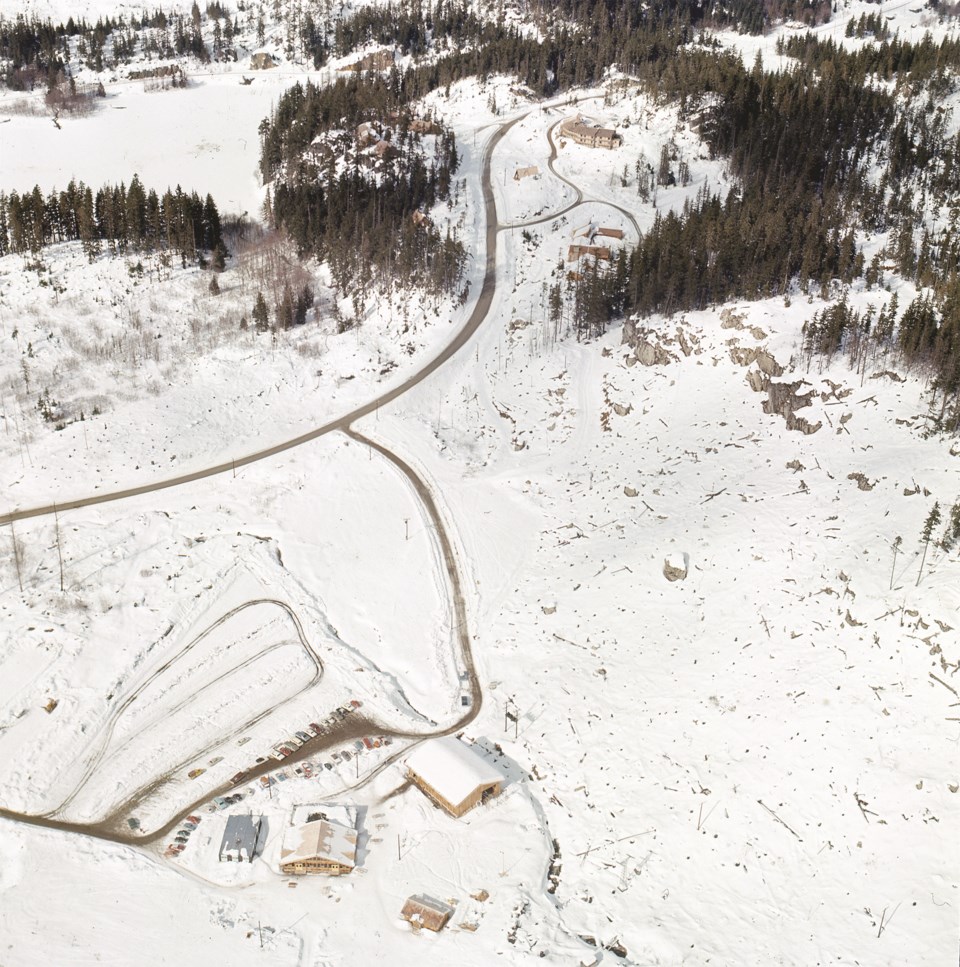Though not as common an occurrence as in previous decades, power outages are not unknown in Whistler, especially during the winter months. Power outages today, however, are usually more localized and of a shorter duration when compared to outages in the 1960s.
In an interview conducted in 2016, Hilda McLennan, whose family owned a unit in Alpine Village, recalled that “Whistler was a strange place when the power failed.” As it sometimes took multiple days for power to be restored, word would travel to Vancouver that the lifts weren’t running, and skiers would stay home. According to Hilda, “It all became really quite quiet and you used to be able to go cross-country skiing down the highway.”
The power outages and accompanying freezing temperatures the McLennans experienced led to some entertaining situations, as they were able to stay in relative comfort despite some challenges. It was not uncommon for pipes to freeze and the McLennans and their neighbours in Alpine Village sometimes made do without running water for a few days at a time. In one instance, the McLennans’ taps were frozen but their drains still worked, while their neighbours next door had working taps but frozen drains. They all went back and forth, with the McLennans walking over to get water to boil their vegetables and the neighbours bringing their used water over to pour down the drain. Another neighbour had been washing his clothes in the bathtub when the water froze. Hilda recalled, “Eventually, he took an axe or something and chipped the ice and got his underwear.”
While entertaining, the experiences remembered by the McLennans were not as dramatic as some of the power outages experienced by Lynn Mathews and her family in the ’60s.
In January 1968, Lynn’s mother-in-law traveled to the Whistler area from Montreal to meet her first grandchild. She was not too impressed with what the area had to offer, even before the power went out in the valley. Dave Mathews was operations manager for Whistler Mountain and so, at the time, Lynn and her family were living in one of the mountain’s two A-frames while mountain manager Jack Bright and his family occupied the other. The A-frames were mainly heated by electricity and were not a comfortable place to stay with young children without power. According to Lynn, something had happened to the transformers in the valley and so power was not expected to come back anytime soon. Instead of staying in the A-frames, the Mathews and the Brights made their way over to the Ski Boot Motel, which had a propane stove, by snowcat. It was dark and snowing hard and Lynn recalled sitting in the snowcat with Dave with “not a clue if we were on the road.” Upon her arrival at the Ski Boot, Lynn remembered her mother-in-law was “upset, to say the least” about where the family was living.
While their evacuation to the Ski Boot was short lived, the two families were reportedly evacuated again the following winter when the whole valley lost power for multiple days. The Mathews and the Brights stayed first at Brandywine Falls and then ended up in a motel in Squamish. Dave stayed in the valley monitoring the situation at Whistler Mountain. He slept in the women’s washroom in the day lodge, as it was the most central room, to try and stay warm. He later told Lynn that all the pipes in their kitchen burst, making the room look like an “ice palace.”
Hilda McLennan and Lynn Mathews may be able to look back at these memories with humour, but power outages, though less common, and extreme cold temperatures are still a concern for many in the valley today.




